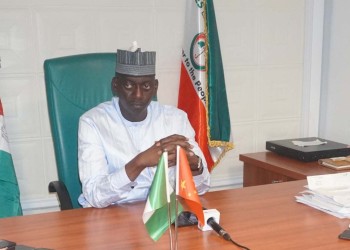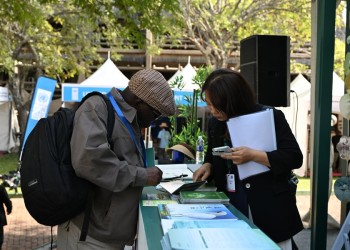Nigeria’s external reserves added $45.3million in July, according to movement in reserves data released by the Central Bank of Nigeria (CBN).
The foreign exchange buffer as of July 28, 2022, moved to $39.22billion from $39.17billion it commenced the month under review.
Analysts have attributed the steady increase in external reserves to CBN’s RT $200 billion Foreign Exchange (FX) Programme, stressing that the policy unveiled in February 2022 has revived foreign exchange earnings from non-oil proceeds.
Analyst at PAC Holdings, Wole Adeyeye said, “The increase in foreign exchange inflows from the non-oil sources, through the CBN RT200 FX programme and increase in diaspora remittances, may have contributed to the increase in Nigeria’s external reserves in July.”
EconomicConfidential recalls that the CBN in February released the operating guidelines for the non-oil export proceeds repatriation rebate scheme as introduced in the RT200 foreign exchange programme.
Precisely, the guideline stipulates those exporters will be paid N65.00 for every $1.00 repatriated and sold at the Investors & Exporters Foreign Exchange Window (I & FX) to Authorised Dealing Banks (ADBs) for other third-party use and N35.00 for every $1.00 repatriated and sold at the I & FX for own use on eligible transactions only.
Although the rebate scheme is just one of the five key anchors of the RT200 FX programme, the CBN aims to raise $200.00 billion in foreign exchange earnings from non-oil export proceeds over the next three to five years.
The CBN governor, Mr. Godwin Emefiele at the end of July’s Monetary Policy Committee (MPC) stated that members applauded the performance of the RT200 and similar initiatives targeted at improving accretion to reserves and stabilizing the exchange rate.
According to him, “The MPC noted that foreign exchange inflow through the RT200 FX Programme in Q1 and Q2, 2022, had increased substantially to approximately $600 million as at June 2022.
“Members also noted the increase in Diaspora remittances as a result of the Naira for Dollar incentive and urged the Bank not to relent in its efforts to encourage foreign exchange inflow to the economy.”
Despite the increasing price of crude oil, Nigeria’s external reserves have depreciated by $1.3billion in seven months of 2022 to $39.22billion as of July 29 from $40.52billion it closed in 2021.
The foreign exchange buffer of the CBN in January was hovering at an average $40billion and later slide to $39billion in three months (February- April) consecutive before reaching $38billion in May 2022.
The movement in reserves data by CBN revealed that it remained flat at $38billion in June and eventually closed at $39.16billion June 30, 2022.













































